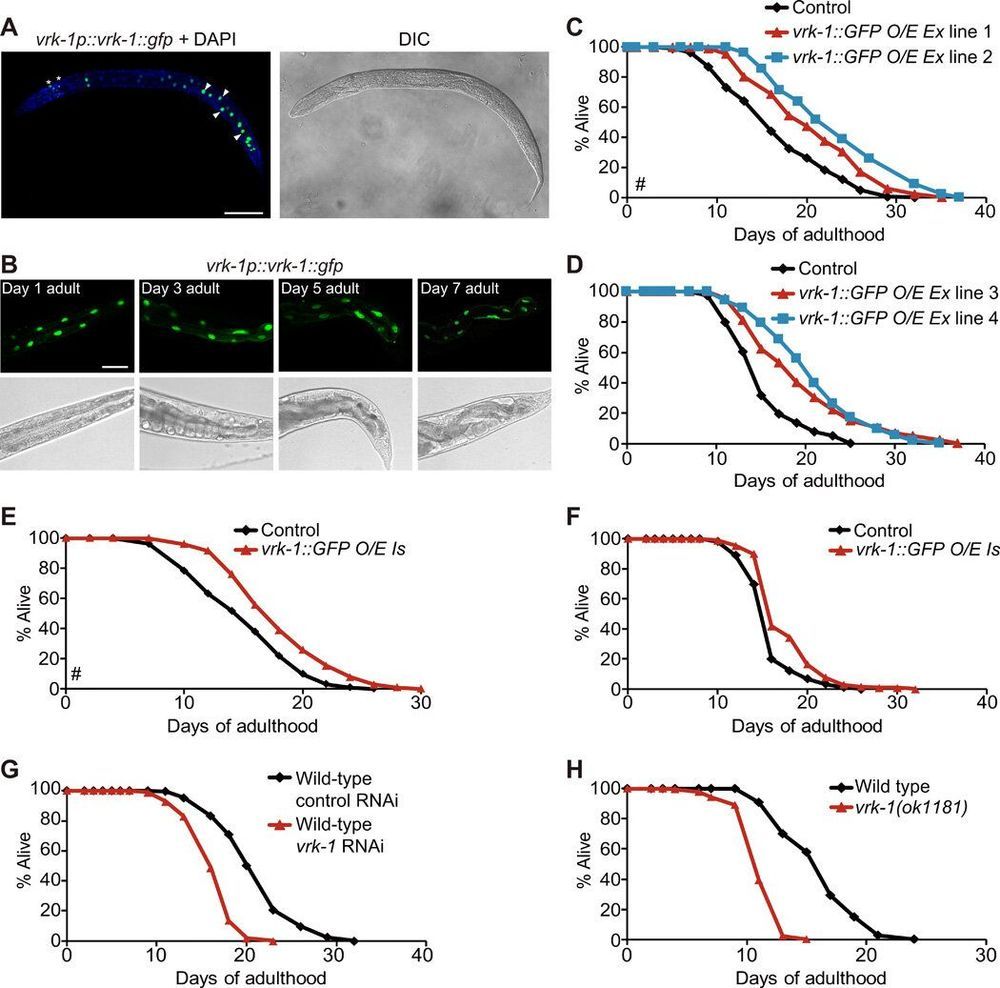A team of researchers affiliated with several institutions in South Korea has found that stimulating production of a certain enzyme in roundworms can increase their lifespan. In their paper published in the journal Science Advances, the group describes their study of the protein VRK-1 and what they learned about its impact on the longevity of roundworms.
Prior research has shown that one way to increase longevity in some species is to use techniques that slow down mitochondrial respiration. In this new effort, the researchers were looking to better understand why slowing energy use in mitochondria has an impact on aging. As part of their effort, they looked at an energy sensor in mitochondria called adenosine 5’-monophosphate-activated protein kinase (AMPK), known to play a role in controlling how much energy is used in cells in roundworms. Prior research had suggested its level of activity is controlled by the protein VRK-1. To learn more about its impact on aging, the researchers genetically engineered two lines of roundworms to force them to produce more VRK-1 and two lines of roundworms to force them to produce less VRK-1. They then monitored the roundworms to see how long they lived.
The researchers found those roundworms expressing more than the normal amount of VRK-1 tended to live longer than average, while those expressing less than average amounts of VRK-1 had shorter lifespans. More specifically, control worms representing the normal lifespan of a roundworm lived on average 16.9 days. In their experiments, one of the lines expressing more VRK-1 lived on average 20.8 days, while the other lived on average 23.7 days. And one of the lines producing less VRK-1 lived on average just 12.7 days and the other just 15.9 days. The researchers suggest this finding indicates that VRK-1 has a direct impact on roundworm longevity.
